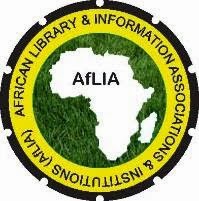In order to address the needs of its members and researchers, BAIFA tends to develop capacity-building partnerships with other libraries, peer organizations and other concerned parties achieving its main goals and bringing researchers in Africa closer to their peers around the world:
The BA and the Royal Tropical Institute (KIT Library)
 In October 31, 2013, Dr. Serageldin, Director of the BA, signed a memorandum of understanding with Mr. Derk Vermeer, President of the Royal Tropical Institute—Koninklijk Instituut voor de Tropen (KIT) on the reallocation of 420 thousands books and journals at the BA. This was a consequence of the Dutch Government’s decision to stop subsidizing the KIT as of the beginning of 2014, which resulted in the closure of Department of Information and Library Services and the KIT Library that has housed over 1.000.000 documents for 230 years. The BA is honored to acquire such a valuable collection, and will work on keeping it and making it accessible to the public.
In October 31, 2013, Dr. Serageldin, Director of the BA, signed a memorandum of understanding with Mr. Derk Vermeer, President of the Royal Tropical Institute—Koninklijk Instituut voor de Tropen (KIT) on the reallocation of 420 thousands books and journals at the BA. This was a consequence of the Dutch Government’s decision to stop subsidizing the KIT as of the beginning of 2014, which resulted in the closure of Department of Information and Library Services and the KIT Library that has housed over 1.000.000 documents for 230 years. The BA is honored to acquire such a valuable collection, and will work on keeping it and making it accessible to the public.
According to the agreement, KIT has provided the BA with relevant digital files and the electronic catalogue of the concerned collection. The agreement also includes the permission from Dutch development organizations to make accessible to the BA electronic materials on “Search4Dev,” which is an online library for digital documents from those organizations. In addition, and subject to the agreement of Elsevier, the BA shall take over the responsibility for providing online services of Scopus and Science Direct databases.
Through BAIFA, the BA will work on maintaining the online and electronic information services of KIT resources, as well as providing access to Elsevier’s two databases. BAIFA is taking over and is managing the network and services provided to active members and researchers, in addition to opening doors for new memberships for other researchers in Africa.
The BA and Elsevier
 In December 3, 2013, Dr. Serageldin, Director of the BA, signed a memorandum of understanding with Mr. Mohamed Kamel, Africa Regional Director, Elsevier, and Ylann Schemm, Senior Corporate Responsibility Manager, Elsevier, on providing the BA the full access to ScienceDirect and Scopus to 150 researchers and organizations working at under-funded environment.
In December 3, 2013, Dr. Serageldin, Director of the BA, signed a memorandum of understanding with Mr. Mohamed Kamel, Africa Regional Director, Elsevier, and Ylann Schemm, Senior Corporate Responsibility Manager, Elsevier, on providing the BA the full access to ScienceDirect and Scopus to 150 researchers and organizations working at under-funded environment.
The agreement is built on a former seven-year partnership between the Dutch Royal Tropical Institute (KIT) and Elsevier. When the KIT Information and Library Services department was faced with closure in 2013 due to funding cuts, it was the Library of Alexandria that stepped in and took over the mission of driving research usage and providing access to ScienceDirect and Scopus to eligible researchers and research institutions.
The BA and Elsevier will collaborate, where feasible, on research capacity-building to address the needs of BAIFA members and researchers. Collaborations will include joint workshops on information literacy with the aim of boosting research output. Through this capacity-building partnership, BAIFA will be able to bring researchers in Africa closer to their peers around the world.
The BA and the African Library and Information Association and Institution (AfLIA)
 In January 17, 2017, Dr. Serageldin, Director of the BA, has signed a memorandum of cooperation between the BA and the African Library and Information Association and Institution (AfLIA) in the context of strengthening professional relations between libraries in Africa and the BA and to facilitate their work in conducting research, capacity building in library and information sciences, and publishing.
In January 17, 2017, Dr. Serageldin, Director of the BA, has signed a memorandum of cooperation between the BA and the African Library and Information Association and Institution (AfLIA) in the context of strengthening professional relations between libraries in Africa and the BA and to facilitate their work in conducting research, capacity building in library and information sciences, and publishing.
The provisions of the memorandum include fostering cooperation in the field of library and information science, establishing networks of African libraries, and disseminating knowledge among African libraries. Said provisions will provide reciprocal knowledge of the achievements and prospects of the development of library science in Egypt and African countries.
AfLIA is an independent international non-profit organization that targets library and information associations, library and information services, librarians and information workers and the communities they serve in Africa. It was founded in 2013 and was registered as an international non-governmental organization (NGO), under the laws of Ghana, in October 2014.